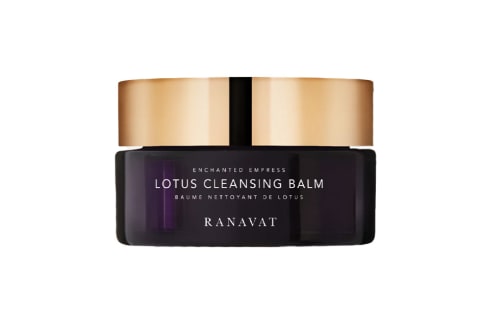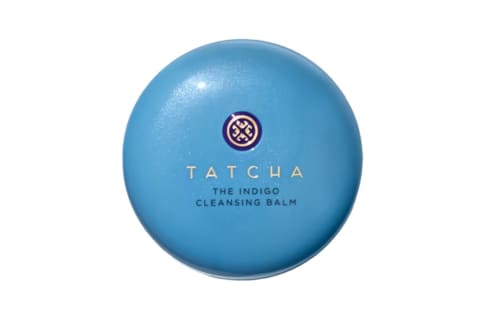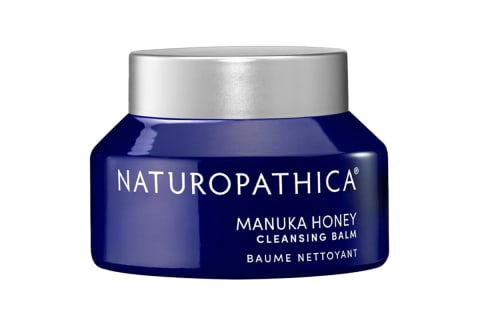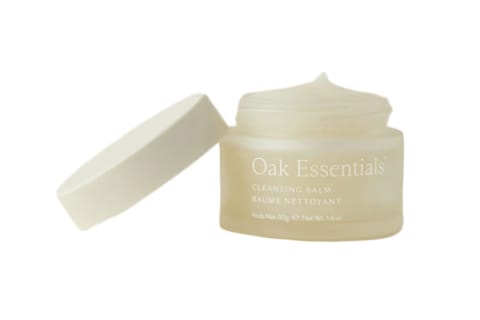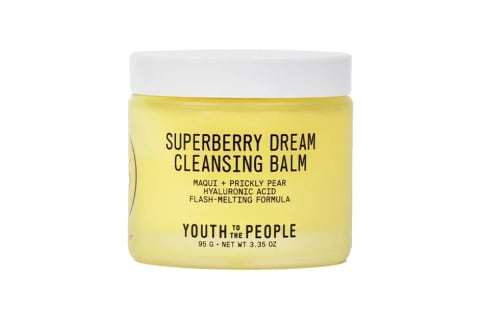Advertisement
It Turns Out, Washing Your Face Can Benefit Your Brain


After a long, busy workday, I practically sprint to the sink. I can think of no better way to ground myself and sweep away the stress than to quite literally rinse off the day. Even the most frenetic schedules are no match for my favorite cleanser: A quick scrub, and I rise from the ashes (or, uh, suds) and return anew.
Sure, I'm a beauty editor who takes pride in a solid skin care routine, but I'm not alone in my affinity for a good, relaxing face wash. Experts agree that cleansing your face can enhance your brain health—your new mindful ritual lies just below.
The link between cleansing & brain health
The intimate brain-skin connection is well documented. There's even an entire field of psychodermatology dedicated to discovering how our minds affect the health of our skin—and vice versa.
But washing your face deserves its own moment in the psycho-derm conversation. Just take it from board-certified dermatologist and psychiatrist Amy Wechsler, M.D.: "There is a big psychological component to washing off the day," she tells mindbodygreen.
"When I get home, I have to change out of my work clothes and into my home clothes. Then I feel like I've left the stress of the day behind… There is also a symbolic cleansing of the day with washing the face." As the daily grime washes down the drain, so do the daily stressors.
We don't have much data on the brain benefits of face washing in particular, but research has shown1 that cleaning oneself is related to reductions in anxiety, even after stressful events.
Studies have also demonstrated that stress can result in ritualized behavior2, and cleansing rituals have existed for centuries across many different cultures and traditions.
For example: "Dinacharya is a common Ayurvedic practice, which translates to 'a daily ritual,'" Michelle Ranavat, Ayurvedic beauty expert and founder of RANAVAT, explains.
"A ritual like daily cleansing brings consistency of purification, which helps to balance the mind, body, and spirit." That's exactly why she formulated her calming Lotus Cleansing Balm, "not only to remove makeup and SPF but to provide a relaxing moment during a stressful day," she notes.
Or consider Japanese beauty brand Tatcha, which currently conducts neurological testing to demonstrate the benefits of various products on the brain. The mind-skin connection is crucial to the brand's ethos, founder Vicky Tsai tells me during a recent brand event, so they routinely use electroencephalography (EEG) to measure participants' neural responses when testing products.
When testing the Clarifying ritual—which includes the Deep Cleanse Gentle Exfoliating Cleanser and Clarifying Clay Mask—they found participants had a 46% reduction in cognitive load, a 106% increase in relaxation, and a 68% decrease in heart rate variation (HRV), after just one use.
It may seem far-fetched, but Wechsler says it is possible to see such dramatic effects. "When someone is taking care of themselves, it lowers cortisol levels," she adds. "It's going to raise all those positive molecules. And if you decrease cortisol, you lower your stress. It's good for your mood, it's good for healing, and it's good for inflammation3."
Which cleanser is best for stress relief?
But it's not just the cleansing itself that carries the stress-relieving magic. Many washes also feature mood-balancing scents and soothing textures that invoke relaxation.
Take, for example, the jasmine and blue tansy notes in Ranavat's Lotus Cleansing Balm: "Jasmine is an incredible Ayurvedic ingredient known to stimulate 'feel-good' hormones that can uplift your energy and mood," she explains.
"This reaction is a result of the natural serotonin boost when jasmine is applied." Blue tansy, she adds, has unique calming powers and anti-inflammatory properties4.
Of course, some folks are sensitive to fragrance and steer clear of essential-oil-infused formulas. You can still find success with a fragrance-free cleansing balm (like Tatcha's Indigo Cleansing Balm) paired with a relaxing facial massage.
"Doing facial massage, even if it's quick, definitely increases circulation in the face," says Wechsler, and it's especially important to maintain blood flow when you're feeling anxious.
As licensed clinical social worker and master EFT trainer Robin Bilazarian, LCSW, DCEP, previously told mbg, "When we are agitated or stressed out, everything about us is robbing blood to go to major muscles." Think about how the color may drain from your face when you're met with a bout of anxiety. By encouraging blood flow back into the face, you signal to the rest of your body that it's OK to relax.
So grab your cleansing balm of choice—scented or otherwise—massage those pressure points, and wipe the slate clean. You deserve the TLC.
The takeaway
We never thought skin care was superficial, but in case you need another reason to prioritize your time at the sink, know that washing your face may come with real brain health benefits. And if you've ever wondered why you feel so good after washing your face, well, you now have your answer. Consider snagging a silky cleansing balm if you don't have one already—here are some more fabulous options for your browsing pleasure.
